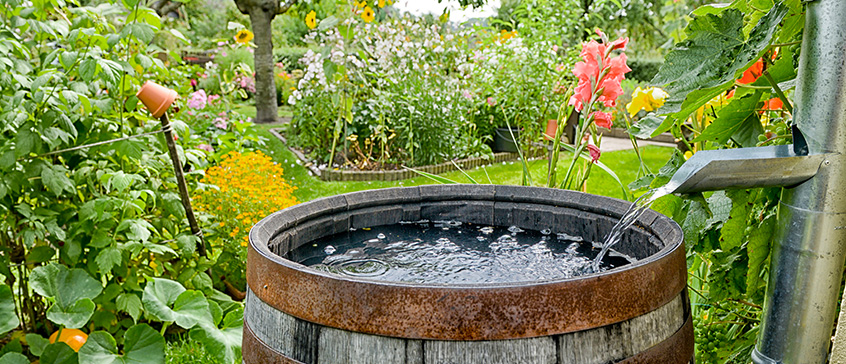
Make a difference in our environment.
Urban sprawl. Deforestation. Air pollution. Water contamination. Invasive species. The demand for sustainable actions is higher now than ever before, and it's only going to grow.
Our courses in sustainability will equip you with the tools and knowledge to make a difference. From seed saving to rainwater harvesting, these courses will empower you to have a positive impact on our community.
Join us on LinkedIn
Stay up to date on current information in the field sustainability and restoration
Sustainability programs
Our Restoration of Natural Systems certificate and diploma programs—offered in partnership through UVic's School of Environmental Studies—are designed to give you the knowledge and skills you need to restore habitats to their natural state, as you pursue a career in sustainability.
If you're interested in Ecological Restoration training, our courses are offered online, appealing to working professionals who want to meet their annual professional development requirements or update their skills and understanding in the field.
With extreme weather events occurring more and more frequently, and ambitious new targets for reducing greenhouse gas emissions, there is a growing need worldwide for climate change adaptation. The Fire Ecology for Environmental Restoration program equips learners with practical knowledge to understand and treat the effects of fire on natural ecosystems.
Check out our GIS Skills and Mapping program, which aims to meet the growing demand for skilled professionals in spatial data analysis and mapping technologies. With a focus on GIS fundamentals, this six-week micro-certificate prepares learners for in-field employment and complements the courses in our Mapping with Drones program.
Through flexible online learning, the Micro-certificate in Tourism Sustainability is designed to foster an understanding of sustainability and enhance the skills of individuals currently employed or seeking a career in the tourism sector.
Discover Your Path in Sustainability
Whether you're a current student looking to deepen your knowledge or a professional looking to upskill and launch a new career, this free info session is your opportunity to learn more, get your questions answered, and see if our programs are the right fit for you!
Next info session: Feb. 24

Sustainability courses
From hands-on workshops to walking tours, our community sustainability courses will help you get your hands dirty! Topics include:
- how to harvest rainwater
- how to save seeds
- which plants are native to Vancouver Island
- environment projects in the community
Courses are offered in the spring and fall. View our available courses below.
Interested in topics on climate action?
Visit our other page to explore courses and programs in climate action.- 4 Seasons X 10 Plants = One Amazing Landscape!
- Adaptation Planning and the Built Environment
- Advanced Principles & Concepts of Ecological Restoration
- Beginner's Guide to Propagating Vegetables From Seed
- Biodiversity and Conservation Biology
- Borders that Break the Rules
- Building Strong Foundations - The Art of Partnerships
- Carnivores vs. Herbivores: Rethinking Meat and Plant-Based Diets
- Community Engaged Scholarship for Today’s World
- Easy Gardening
- Ecological Gardening
- Ecorestoration Strategies: Case Studies
- Ecosystems of British Columbia, Canada, and the World
- Ethical, Legal, and Policy Aspects of Environmental Restoration
- Field Study in Ecological Restoration I
- Field Study in Ecological Restoration II
- Forest Restoration and Sustainable Forestry
- From Catastrophe to Community
- From Clam Gardens to Craft Beer: Vancouver Island Food Histories and Futures
- From Theory to Practice: Competencies for Community Engagement
- Galiano Island Field Study
- Garden Hospitality: Welcoming the Pollinators
- Gardening for Climate Change
- Gardening for Wildlife
- Gardening with Native Plants
- Growing Food Indoors Under Lights
- Indigenous-Led Resurgence and Resilience
- Introduction to Backyard Beekeeping
- Introduction to Permaculture
- It’s All Talk and All Action - Part 1
- It’s All Talk and All Action - Part 2
- Landscape Design for the Pacific Northwest
- Managing Mason and Leafcutter Bees
- Mapping with Drones 01 Field Day
- Mapping with Drones 02 Field Day
- Mapping with Drones 1
- Mapping with Drones 2
- Mason Bees: An Incredible Pollinator to Host in your Garden
- Mining Reclamation
- Navigating Ethical Complexities in Community Engagement
- Non-Timber Forest Management and Sustainable Use by Major Forest Zones in BC
- Participatory Methods - Tools for Community Engagement
- Plants that Earn Their Keep
- Principles and Concepts of Ecological Restoration
- Responsibilities to Coastal Indigenous Peoples and Lands
- Restoration of Marine Aquatic Systems
- Science Communication for Ecological Restoration
- Selection and Propagation of Native Plants for Ecological Restoration
- Sign-up for Discover Your Path in Sustainability at UVic
- Soil Conservation and Restoration
- Special Topics in Ecological Restoration: Climate Change in Ecological Restoration
- Special Topics in Environmental Restoration: Climate Change in Ecological Restoration
- Special Topics in Environmental Restoration
- Success with Honey Bees: Backyard Beekeeping
- Thematic Deep Dives - From Theory to Practice
- Traditional Systems of Land and Resource Management
- Urban Restoration and Sustainable Agricultural Systems
- UVic's Restoration of Natural Systems Program: What can it do for you?
- UVic’s Transformative Climate Action Program: What can it do for you?
- With or Without the SDGs: Gendered Struggles for Food Sovereignty

From Theory to Practice
This four-day intensive workshop equips academics, staff, graduate students and community leaders with essential community engagement skills. Participants will engage in interactive sessions to build authentic partnerships, apply participatory research methods and develop ethical decision-making abilities.
View series

Urban and Regional Planning
Series of professional development workshops for current urban planners and students seeking to explore the field.
View series
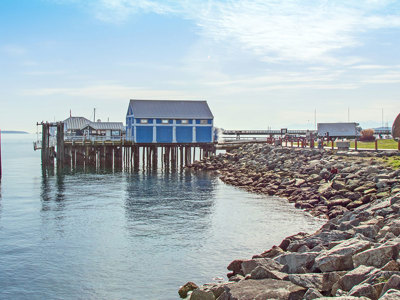
UVic on the Peninsula
Each term we offer a selection of lectures and short courses in Sidney, most of which take place at the Mary Winspear Centre.
View series

Ecological Restoration
Advanced ecology training that builds on your knowledge in the field. Courses are offered online, appealing to working professionals as a means to meet their annual professional development requirements or to update their skills and understanding.
View program

Fire Ecology for Environmental Restoration
The Fire Ecology for Environmental Restoration program equips learners with practical knowledge to understand and treat the effects of fire on natural ecosystems.
View program
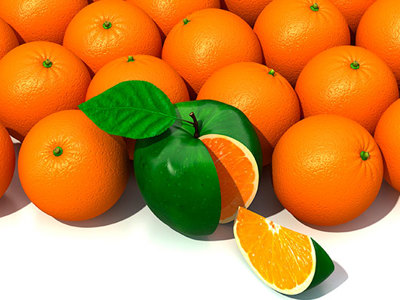
General Studies
This flexible certificate program allows you to customize a course of study to meet your specific learning goals.
View program

GIS Skills and Mapping
GIS technology is increasingly integrated into various industries to enhance spatial data analysis, decision-making, and planning capabilities. The program provides hands-on training in open-source software like QGIS, Google Earth and the Gaia app. You will learn to create custom maps, analyze spatial data, and answer complex human and environmental questions.
View program

LiDAR Fundamentals for Climate Change Risk Analysis
LiDAR is a remote sensing survey method that facilitates 3D mapping of the Earth’s surface including urban and rural topography. This program equips learners to use and analyze LiDAR data for developing critical information towards mitigating the impacts of climate change.
View program

Mapping with Drones
Do you want to take your connection to our planet to new heights? Flying drones gives you the chance to navigate the Earth from above and reach new perspectives like never before.
View program

Restoration of Natural Systems – Certificate
Knowing where we are headed, from an ecological standpoint, requires an understanding of environmental impacts and recovery strategies. The Restoration of Natural Systems program provides a bridge that connects this knowledge with the practical skills needed to solve complex restoration issues.
View program

Restoration of Natural Systems – Diploma
The Restoration of Natural Systems program provides a bridge that connects this knowledge with the practical skills needed to solve complex restoration issues. The program’s holistic approach will empower you, as someone who is passionate about the environment, to make a difference in how we connect with the natural world.
View program

Tourism Sustainability
This micro-certificate addresses the response to extreme weather events and the global need for climate change mitigation and adaption. The program aims to prepare learners with the tools and knowledge to navigate environmental challenges in the tourism sector.
View program

Learn Geographic Information Systems (GIS) skills and mapping techniques with expert instructor Jessica Neal through UVic Continuing Studies' micro-certificate program. Transform complex data into actionable insights for environmental science, urban planning, climate response, and healthcare applications. With over 10 years of GIS teaching experience, Jessica guides students through hands-on projects that build portfolio-ready skills for high-demand careers in government, environmental consulting, and spatial data science.
Read Story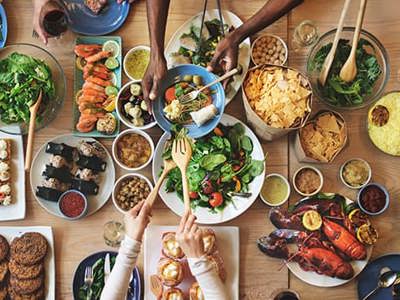
Food shapes not only what we eat but also our identities, cultures and the environment. Beyond the Plate: Food, Culture and Social Impact explores these connections, challenging you to rethink food’s role in society and your impact as a consumer.
Read Story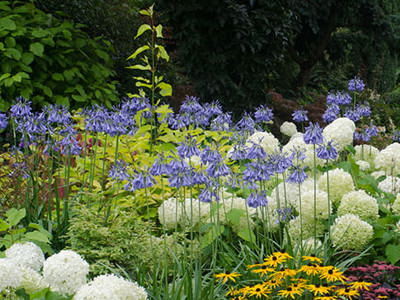
Explore how to create a sustainable, chemical-free garden that works in harmony with nature. This course will guide you through practical techniques like companion planting, composting and fostering biodiversity to build a thriving, resilient garden.
Read Story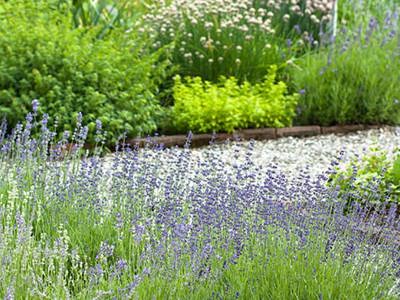
Creating wildfire-resilient gardens is essential in mitigating the risks posed by increasingly prevalent wildfires due to climate change. By incorporating fire-resistant plants, strategic landscaping and sustainable practices, these gardens not only protect homes and communities but also contribute to environmental conservation and long-term safety.
Read Story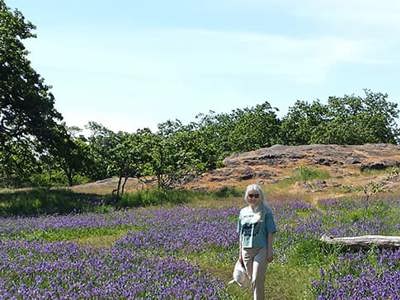
Patricia Dijak, a graduate of the Climate Action Planning program—in partnership with the School of Environmental Studies—used her passion for tackling the climate crisis to connect global strategies with local solutions, focusing on collective action and nature-based initiatives. Through flexible coursework and supportive mentorship, she gained skills to influence policies, foster community collaboration, and promote sustainable urban planning to address climate challenges effectively.
Read Story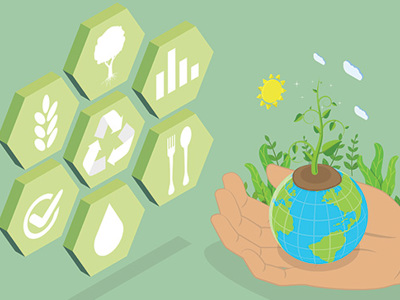
Permaculture offers a mindset shift that encourages us to view our relationship with the environment as a partnership rather than a dominance. By aligning our daily practices with the wisdom of nature, we can create sustainable, regenerative systems that provide for our needs while respecting the intricate balance of the natural world. Embracing permaculture means taking a step toward a brighter and more sustainable future.
Read Story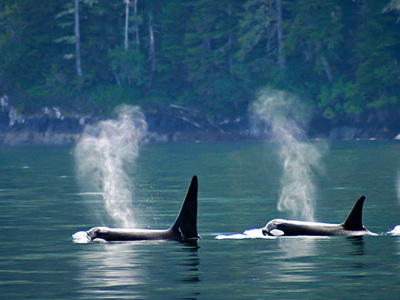
In response to the increasing frequency of extreme weather events and the global need to reduce greenhouse gas emissions, the new Micro-certificate in Tourism Sustainability is launching with Continuing Studies at UVic.
Read Story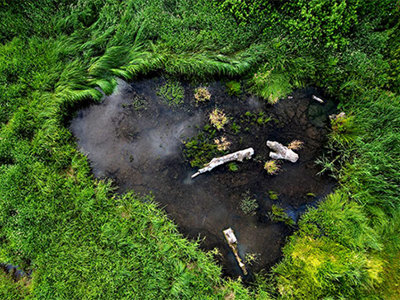
Winter 2024 Sustainability and Ecological Restoration Newsletter.
Read StoryThis year launches the United Nations Decade on Ecosystem Restoration. It is a rallying call for the protection and revival of ecosystems all around the world, for the benefit of people and nature. It aims to halt the degradation of ecosystems, and restore them to achieve global goals.
Read StoryThe RNS program is excited and pleased to introduce our new program director, Dr. Nancy Shackelford, who will be joining us in January 2020.
Read Story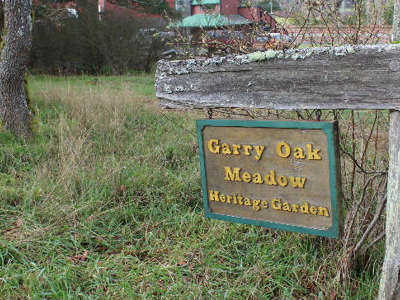
Plans to restore a Garry Oak meadow in honour of former Metchosin councillor, Moralea Milne—who passed away suddenly in 2018—are being given a helping hand by the division's Restoration of Natural Systems (RNS) students and Program Di
Read Story
For his final RNS diploma program project, Todd Redding restored a section of mountain bike trail in the Three Blind Mice trail network near Penticton, BC. Redding planned and undertook the restoration of the trail with the support of the Penticton Area Cycling Association.
Read Story
More than half of the earth’s grasslands are degraded from nearly a century of intensive agriculture, resource extraction, and urbanization.
Read Story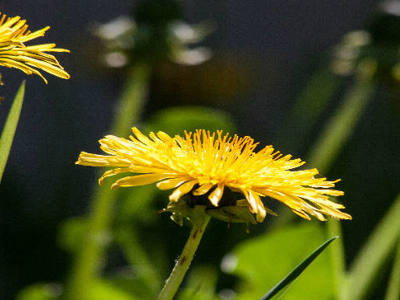
Our relationship with nature is complex. We usually think in terms of taking from nature. It provides us with our needs and wants. But to be a part of nature we also need to give back. There needs to be reciprocity.
Read Story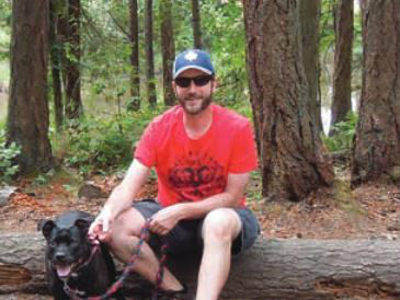
Julian enrolled in the RNS program in 2002 thinking he’d learn better ways to pull broom, but instead he learned much about planning, and especially the importance of community involvement in ecological restoration. Whenever the courses allowed, he would do his studies and reports about Cuthbert Holmes Park.
Read Story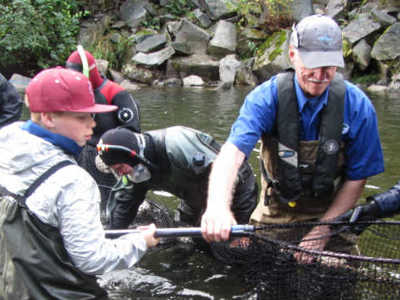
Restoration of Natural Systems Program alumni, Wendy Kotilla, founded the Youth and Ecological Restoration Program (YER) in 2004 based on her own experiences of being surrounded by the healing powers of nature.
Read Story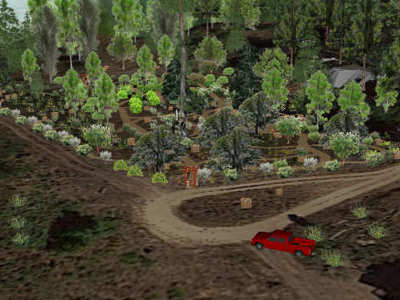
Bringing together ecological restoration and permaculture while also incorporating traditional ecological knowledge held by the Penelakut Tribe is the goal of Adam Huggins’ final project for his RNS Diploma.
Read Story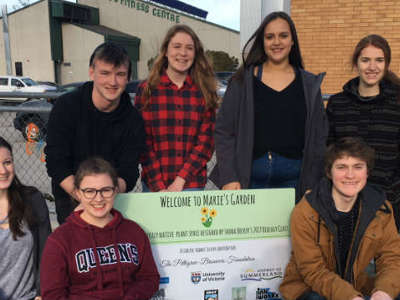
"If we are going to save environmentalism and the environment, we must also save an endangered species: the child in nature." -Richard Louv, 2005
Read Story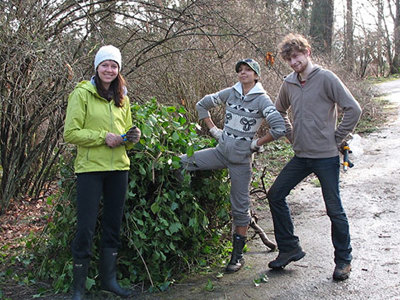
The University of Victoria offers two programs in ecological restoration benefitting from a partnership that brings together content expertise from the School of Environmental Studies and the sensitivity to adult learner needs and online teaching expertise from the Division of Continuing Studies.
Read Story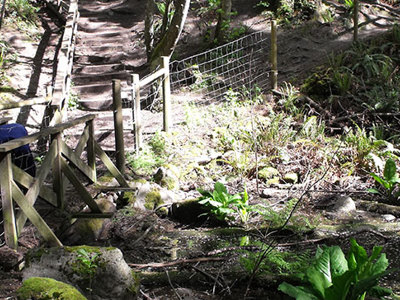
Ecological restoration depends critically on context. In addition to the ecological perspective, ecological restoration in cities needs to consider social and political layers that have impact on a site as well. Context for the site design is critical for a project to endure. There is no single prescription for restoration. To really work, a design requires that we understand the layers of a site’s past history, current influences — both on- and off-site and future impacts.
Read Story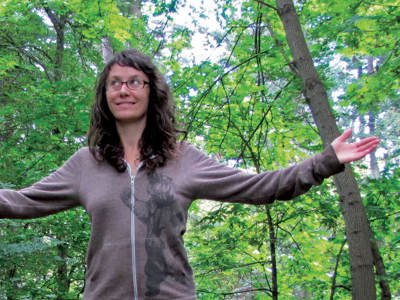
Amanda Evans is originally from Toronto but came out to Victoria in 2003 to attend the University of Victoria. In 2012, she graduated with a Bachelor of Science in Environmental Studies and Geography, and a Diploma in Restoration of Natural Systems.
Read Story
Like many in her program, Coleman works full time and is five courses into the 12-course program. As a chemist, her day job is analyzing data for an environmental laboratory in Sidney. "I wanted to know more about the environment and systems and how it all fits together," she says. "I thought this program would be a little flaky, like maybe it won't be anything I can use (in life or work). But it definitely is."
Read Story
